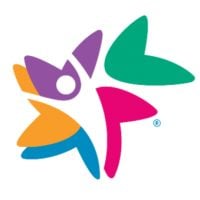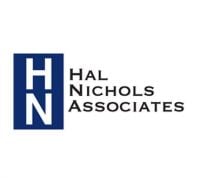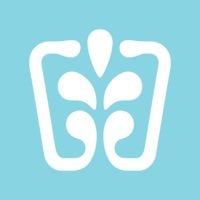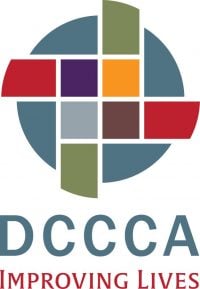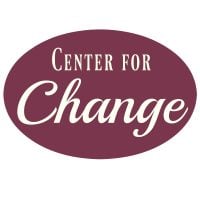EDCare Kansas City
Drug Rehab Center in Mission, Kansas
EDCare Kansas City is a CARF-accredited addiction treatment center located in Mission, KS that provides personalized substance abuse, dual diagnosis, eating disorder, and drug addiction recovery services such as drug rehab, intensive outpatient, outpatient, and partial-hospitalization programs to individuals in need - all conveniently accepted by most private health insurance plans.
About EDCare Kansas City in Kansas
EDCare Kansas City in Mission, Kansas is a reputable substance abuse treatment facility that specializes in providing comprehensive care for individuals suffering from substance abuse, dual diagnosis, eating disorders, and drug addiction. EDCare Kansas City offers a range of treatment programs including drug rehab, intensive outpatient, outpatient, and partial-hospitalization levels of care. They are dedicated to helping individuals overcome their challenges and achieve lasting recovery. EDCare Kansas City is accredited by CARF, which demonstrates their commitment to providing high-quality care and meeting rigorous standards of excellence.
At EDCare Kansas City, a variety of services are available to help individuals struggling with addiction and substance abuse. They offer evidence-based therapies such as individual counseling, group therapy, and family therapy to address the underlying issues driving addiction and promote healing. In addition, their treatment programs focus on relapse prevention, coping skills development, and education about addiction and recovery. EDCare Kansas City also provides specialized care for individuals with dual diagnosis and eating disorders, ensuring that each individual receives tailored treatment that addresses their unique needs. With their comprehensive approach and dedication to individualized care, EDCare Kansas City strives to empower individuals to break free from addiction and reclaim their lives.
Genders
Ages
Modality
Additional
Accreditations

CARF
The Commission on Accreditation of Rehabilitation Facilities (CARF) is a non-profit organization that specifically accredits rehab organizations. Founded in 1966, CARF's, mission is to help service providers like rehab facilities maintain high standards of care.
Conditions and Issues Treated
Substance Abuse Treatment is important when getting sober, as it helps addicts learn the skills they need to live a clean life. There are many different kinds of recovery treatment, including but not limited to medication-assisted therapy, behavioral therapeutic approaches, self-help groups, and counseling. Each treatment has its benefits that help addicts recover.
Counseling can help addicts learn the skills they need to live sober lives. It can be used to treat underlying mental health issues, like depression or anxiety, that could lead to relapse. Counseling can also help people find work, deal with family problems, and learn to manage living without drugs.
Levels of Care Offered
This center offers a variety of custom treatment tailored to individual recovery. Currently available are Drug Rehab, Intensive Outpatient, Outpatient, Partial-Hospitalization, with additional therapies available as listed below.
An intensive outpatient program (IOP) is effective for drug rehab, but it can take six months to several years to complete. It’s the most popular type of drug rehab program in the United States. One example of a successful IOP success story is actor and comedian Chris Rock, sober since 1990.
An IOP allows participants to spend nights at home while attending meetings throughout the day. It’s a good way for drug addicts to make a recovery plan in an outpatient setting while still supporting their loved ones.
Alcohol or drug addiction, or co-occurring disorders, are treated in an outpatient program. The patient must attend therapy and other programs at the facility but can return home each night.
Outpatient treatment allows recovering addicts to live at home while receiving addiction treatment. Outpatients can attend group sessions for a few hours per week. Outpatients may also continue to work full time and study/attend school without interruption if they choose.
A popular way of getting drug treatment is through a Partial Hospitalization Program. These programs are short and intensive, allowing for more freedom in family visits. Patients can check in with the program anywhere from 18 to 30 hours per week but only sleep at home at night. The program may last anywhere from one to six months.
Therapies & Programs
Different people react differently to various treatment options. Some drug rehabilitation centers offer individualized treatment that caters to the specific needs of a drug addict. The best treatment option varies on an individual depending on the type of drug abused, life history, medical condition of the person, social circumstances, and the environment they live in now.
When a person enters drug rehab, they usually have anti-drug associations such as withdrawal symptoms, stress, cravings, etc. The first step of drug rehab is to detoxify the body from any residual substances in it. Drug rehabilitation centers usually employ trained medical professionals to help in this process. Usually, the initial detoxification lasts for five days, where the person is monitored under close supervision.
Trauma therapy is a form of therapy used to help people process and understand past traumas. This can help struggling addicts, as many people turn to drugs or alcohol to mask the pain of their past. Trauma therapy can be done in several ways, such as through visualization, discussion, and writing down thoughts and feelings. The goal is to help the individual understand why they are having problems coping with certain situations and changing how they think and react to things. This is often done in tandem with other therapies to treat the underlying issues associated with addiction.
The idea behind trauma therapy is that while some people can experience traumatic events and not have lasting psychiatric symptoms, many others will. In these cases, memories get hidden from consciousness but continue to influence how the person processes and copes with things in their life. They may avoid situations that resemble what happened or become suddenly angry or irritated to a situation that reminds them of a past event. With the help of a therapist, people can go back over memories and experiences. This helps them understand why they are having problems coping with certain situations and changing how they think and react to things.
Life Skills Services offered at Drug Treatment Centers assists addicts in their recovery by teaching them healthy coping mechanisms that will aid them in becoming sober, focussing on helping people enter into, and maintaining long-term sobriety. Drug Treatment Centers provide Life Skills Services at varying levels of intensity, specific to the needs and requirements of each patient.
Life Skills Services offered at Drug Treatment Centers assists addicts in their recovery by teaching them healthy coping mechanisms that will aid them in becoming sober, focussing on helping people enter into, and maintaining long-term sobriety. EDCare Kansas City in Mission, Kansas provide Life Skills Services at varying levels of intensity, specific to the needs and requirements of each patient.The benefits of Life Skills Services offered at Drug Treatment Centers:
- Restores hope and empowerment — Helps addicts believe that recovery is possible and instills a new confidence in their ability to achieve a positive, drug-free future
- Enhances family involvement — Encourages families to get involved in the recovery process and supports their understanding and encouragement of healthy behavior.
- Increases patient’s compliance — Helps patients take responsibility for and ownership of their recovery and encourages continued progress
- Reduces relapse rates — Encourages long-term abstinence and emphasizes the importance of establishing sober support systems.
Patient Experience
Creative Arts
If you’re looking for a drug addiction treatment program, you might want to consider creative arts therapy. This type of therapy can help patients express their thoughts and feelings they might not be able to otherwise. Having a creative outlet is also an excellent way to manage anxiety and deal with difficult emotions. In some cases, expressive therapy may include reading, music, theater, art, and more. A creative arts therapy program may be available at Mission, .
Experiential Therapy at EDCare Kansas City
Experiential therapy is a type of therapeutic approach that focuses on having patients work through problems, issues, or emotions by engaging directly in some real experience. It occurs face-to-face with a therapist who helps these people to explore their feelings first hand. The hope is that when this happens, the patient will feel driven to turn away from their destructive behavior and instead take up positive behaviors or coping mechanisms. Direct experience methods, role play, psychodrama, interpersonal and social learning are a few different forms of experiential therapy.
Payment Options Accepted
For specific insurance or payment methods please contact us.
Is your insurance accepted?
Ask an expert, call (888) 674-0062
Additional Details
Specifics, location, and helpful extra information.
Mission, Kansas 66202 Phone Number(844) 344-9102 Meta DetailsUpdated November 25, 2023
Staff Verified
EDCare Kansas City Patient Reviews
There are no reviews yet. Be the first one to write one.
Mission, Kansas Addiction Information
About 42% of adults in Kansas have tried an illicit drug at some point in their lives. 12.4% of the state population uses illegal drugs and 4.5% abuse alcohol in a given year. 15.16% of all deaths in Kansas between 2008 and 2017 were caused by either drugs or alcohol.
Mission, Kansas has a long history of drug abuse and addiction problems. In 2018, there were about 30 drug overdoses in the city. About 28% of people in Mission have driven while under the influence of drugs or alcohol. The rate of binge drinking in Mission is about 15%. There are many treatment options available for people suffering from addiction. Treatment can be provided in an outpatient or inpatient setting.
Treatment in Nearby Cities
- Ellsworth, KS (191.8 mi.)
- Moundridge, KS (163.2 mi.)
- Emporia, KS (91.2 mi.)
- Marysville, KS (119.4 mi.)
- Salina, KS (158.0 mi.)
Centers near EDCare Kansas City
The facility name, logo and brand are the property and registered trademarks of EDCare Kansas City, and are being used for identification and informational purposes only. Use of these names, logos and brands shall not imply endorsement. RehabNow.org is not affiliated with or sponsored by EDCare Kansas City.
